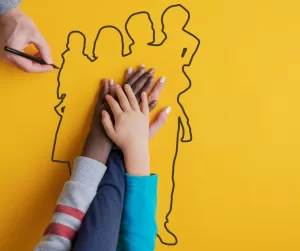 As far as I can tell, most parents want to raise successful children to reach launch-age fully capable of conducting their lives with responsibility and respect. When they leave the safety of their nests feeling self-confident, competent, resilient, and have the drive to contribute positively to the world, they are ready to greet whatever comes at them. We want our children to go out into the world capable of finding success yet able to weather the bumps and storms with a strong sense of self. But, what are the secrets that make children successful?
As far as I can tell, most parents want to raise successful children to reach launch-age fully capable of conducting their lives with responsibility and respect. When they leave the safety of their nests feeling self-confident, competent, resilient, and have the drive to contribute positively to the world, they are ready to greet whatever comes at them. We want our children to go out into the world capable of finding success yet able to weather the bumps and storms with a strong sense of self. But, what are the secrets that make children successful?
We do not want our kids to launch with the attitude that the world owes them, they are separate from the rules others must follow, and they shouldn’t have to work hard for what they want. We want them to create interdependent relationships with others and not use their individual power to push others out of their way.
Most of all we want our children to feel inspired and fulfilled in their lives, doing what they love, satisfied with most of their choices and in mutually Read more…








 Your goal for your children is to raise strong, self-confident, resilient, independent humans who contribute to society, right? This doesn’t just happen somewhere in the teen years. It starts from setting family values that begin with
Your goal for your children is to raise strong, self-confident, resilient, independent humans who contribute to society, right? This doesn’t just happen somewhere in the teen years. It starts from setting family values that begin with  A. The Foundation: You, the parent.
A. The Foundation: You, the parent.  “My child is so ungrateful.”
“My child is so ungrateful.”  Q. My son is 11 and an only child. His first reaction to everything is negative, a sigh, makes a face and moans. This is the reaction to every meal (even stuff he likes), an outing he likes or even just being asked to watch tv with us. When we try to do fun family stuff he moans. Nearly every time he enjoys the activity and tells us afterwards, when we ask, that he loved it. He just wants to be playing on his iPad or watching TV on his own in his room. He says these activities take time from his gaming. I get frustrated because I plan these family activities around what he likes to do and yet he moans about going. Then it causes a row because no matter what we do he never gets excited or happy.
Q. My son is 11 and an only child. His first reaction to everything is negative, a sigh, makes a face and moans. This is the reaction to every meal (even stuff he likes), an outing he likes or even just being asked to watch tv with us. When we try to do fun family stuff he moans. Nearly every time he enjoys the activity and tells us afterwards, when we ask, that he loved it. He just wants to be playing on his iPad or watching TV on his own in his room. He says these activities take time from his gaming. I get frustrated because I plan these family activities around what he likes to do and yet he moans about going. Then it causes a row because no matter what we do he never gets excited or happy.

 Q. My 8 year old son is constantly talking back to me and using vulgar language. I tell him that is not acceptable, and he keeps doing it. He argues and doesn’t listen to authority—my authority anyway. He’s fine at school. Teachers love him. When I was young, I would have been smacked if I said half of what he does. I’m at a loss. What do I do to stop this constant talking back and throwing crude words at me?
Q. My 8 year old son is constantly talking back to me and using vulgar language. I tell him that is not acceptable, and he keeps doing it. He argues and doesn’t listen to authority—my authority anyway. He’s fine at school. Teachers love him. When I was young, I would have been smacked if I said half of what he does. I’m at a loss. What do I do to stop this constant talking back and throwing crude words at me?
 This month, Bonnie has invited guest writer, Abi Long, to offer her traveling insights for families.
This month, Bonnie has invited guest writer, Abi Long, to offer her traveling insights for families.
 Q. We have a 4-year-old turning 5 next month, and we have a lot of toilet talk going on. We’ve tried ignoring it, explaining why it’s not okay and that it’s not okay to use in our house. Nothing seems to work. He just lays around and says: penis, boobies,
Q. We have a 4-year-old turning 5 next month, and we have a lot of toilet talk going on. We’ve tried ignoring it, explaining why it’s not okay and that it’s not okay to use in our house. Nothing seems to work. He just lays around and says: penis, boobies,